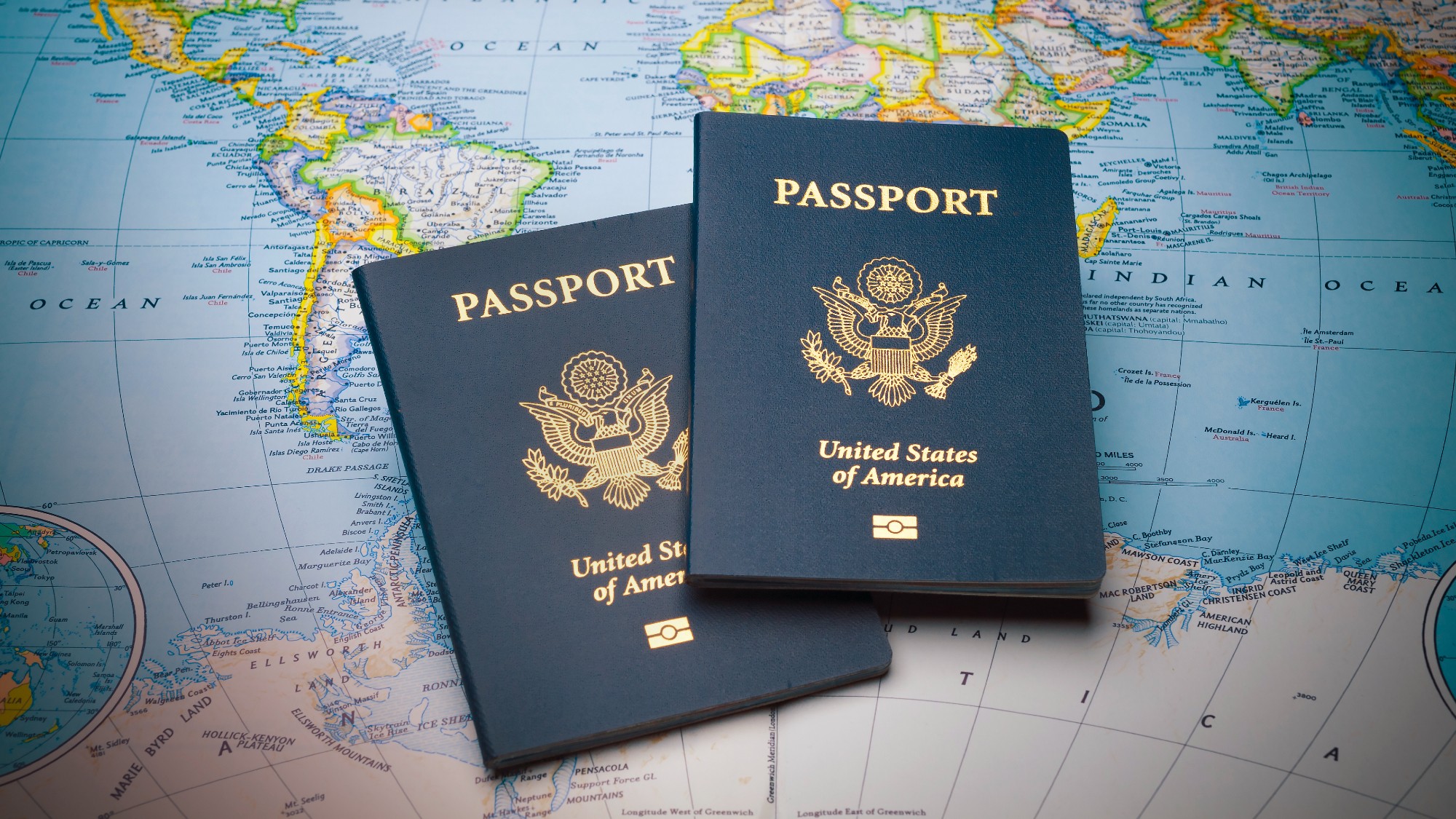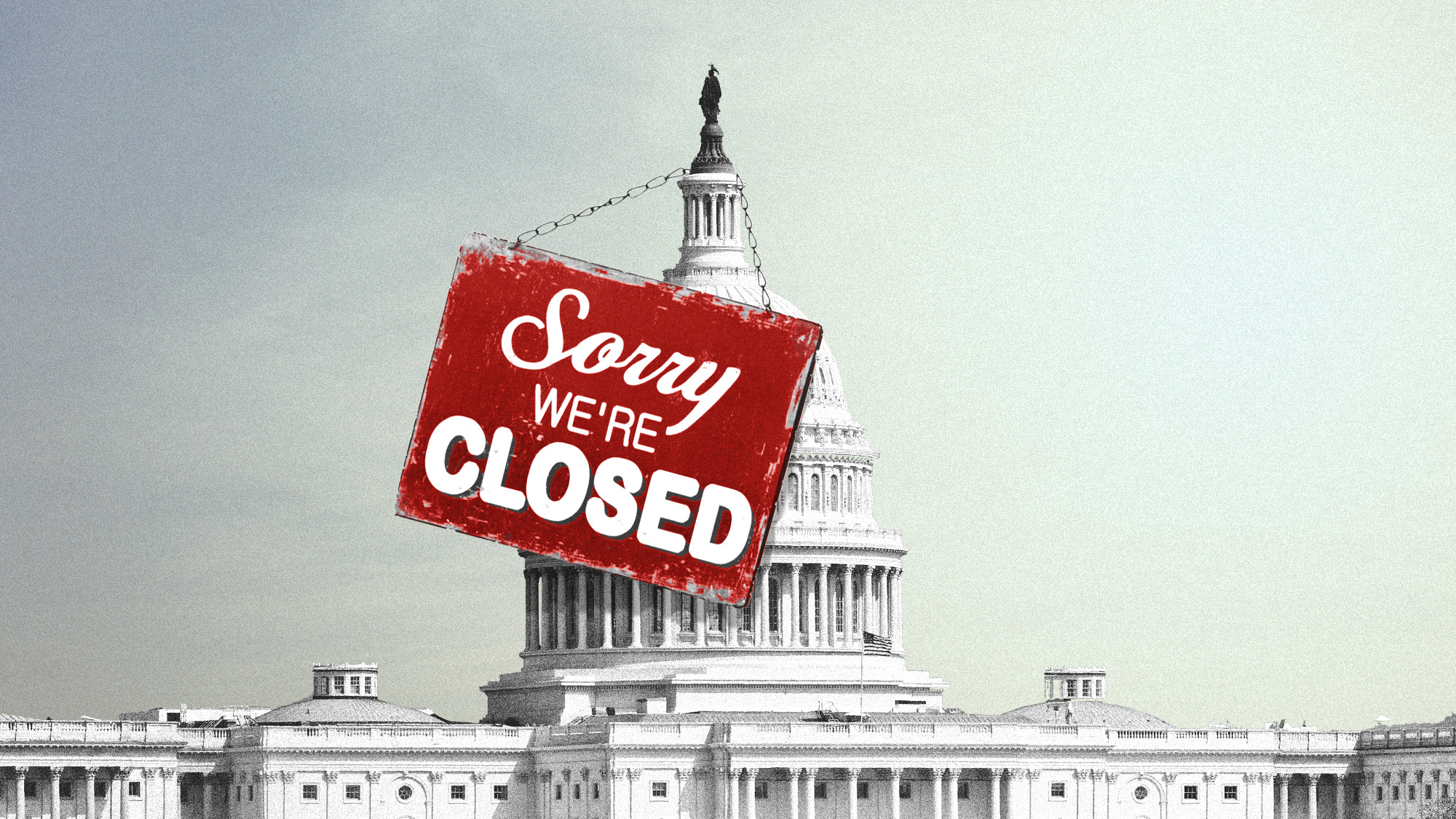This is what you should know about State Department travel advisories and warnings
Stay safe on your international adventures


A free daily email with the biggest news stories of the day – and the best features from TheWeek.com
You are now subscribed
Your newsletter sign-up was successful
Civil unrest, crime, health, terrorism and likelihood of natural disasters are among the factors that come into play when the U.S. State Department issues its travel advisories. Ranging from Level 1: Exercise Normal Precautions to Level 4: Do Not Travel, these advisories aim to keep Americans safe and secure while abroad, and travelers are encouraged to read them before heading on their journeys.
What exactly do travel advisories say?
The advisories "describe the risks" of visiting a country and "give clear guidance to U.S. citizens to help them stay safe," the State Department said. From lowest to highest, the travel advisory levels are Level 1: Exercise Normal Precautions; Level 2: Exercise Increased Caution; Level 3: Reconsider Travel; and Level 4: Do Not Travel. At the advisory level 4, there is a "greater likelihood of life-threatening risks," and the U.S. government "may have very limited ability to provide assistance, including during an emergency."
Advisories for Level 1 countries, like Japan, are straightforward and include a link to a page containing additional information, like whether a tourist visa is required for entry and if there are any vaccination requirements. A Level 3 or 4 country will have more details in its advisory, including a summary of why it is dangerous to travel there. South Sudan is at a Level 4, and its advisory lists "crime, kidnapping and armed conflict" as the reasons why travel is strongly discouraged.
The Week
Escape your echo chamber. Get the facts behind the news, plus analysis from multiple perspectives.

Sign up for The Week's Free Newsletters
From our morning news briefing to a weekly Good News Newsletter, get the best of The Week delivered directly to your inbox.
From our morning news briefing to a weekly Good News Newsletter, get the best of The Week delivered directly to your inbox.
What if I'm in a Level 4 country or must go to one?
Should you find yourself in a country that suddenly has a Level 4 travel advisory, it is recommended to leave as soon as it is safe to do so. For those who feel they need to go to a Level 4 country, the State Department advises writing a will and leaving DNA samples in case of "worst-case scenarios." U.S. passports are not valid for traveling to, in or through North Korea, and the only way to enter this Level 4 country is by applying for a special validation passport. These are granted on a limited basis to people whose trips are in the "national interest," like a professional journalist or Red Cross representative on an official mission.
Does the State Department issue travel advisories for every country?
Yes. When it comes to determining each country's travel advisory level, "safety and security conditions that could affect the lives and interests of U.S. citizens abroad" are considered, with each analysis "undertaken without regard to bilateral political or economic considerations."
There is an overall travel advisory level for each nation, but "levels of advice may vary for specific locations or areas within a country." In Mexico, Americans are advised not to travel to six states — Colima, Guerrero, Michoacán, Sinaloa, Tamaulipas and Zacatecas — due to crime and kidnapping. Americans are advised to also reconsider traveling to seven other states but should exercise normal precautions or increased caution in the rest of the country.
How often are advisories updated?
The State Department reviews Level 1 and 2 travel advisories at a minimum of once every 12 months. Level 3 and Level 4 advisories are evaluated at least once every six months.
A free daily email with the biggest news stories of the day – and the best features from TheWeek.com
What is the worldwide caution advisory for LGBTQ+ travelers?
In May, a worldwide caution security alert was issued "due to the potential for terrorist attacks, demonstrations or violent actions against U.S. citizens and interests." The State Department specifically warned there is an "increased potential for foreign terrorist organization-inspired violence against LGBTQI+ persons and events," and people should "stay alert" at events like Pride celebrations.
"Traveling as an LGBTQ+ person always carries a certain degree of risk," John Tanzella, the president and CEO of the International Gay and Lesbian Travel Association, said to Condé Nast Traveler. "It is the reality of our world, with more than 60 countries criminalizing our relationships, and a rise in anti-LGBTQ+ legislation around the world." Before booking a trip, LGBTQ+ travelers should research a country's laws and culture, and read up on resources available while on the road.
What is STEP?
U.S. citizens and nationals can enroll in the free Smart Traveler Enrollment Program (STEP) by signing up on the State Department website. This service allows travelers to register their international trips and receive communications from the closest U.S. embassy or consulate in case of emergency. They can also get security, weather and health alerts while at their destination.
Some travelers might find it helpful to "think of STEP like travel insurance: If all goes well, you won't need to use it, and you might even forget you have it," The Points Guy said. Should things take a turn while on your trip, it could be a lifesaver, as the "local U.S. embassy is the quickest way to get help" and has the goal of ensuring all Americans in its "jurisdiction are safe and accounted for."
Catherine Garcia has worked as a senior writer at The Week since 2014. Her writing and reporting have appeared in Entertainment Weekly, The New York Times, Wirecutter, NBC News and "The Book of Jezebel," among others. She's a graduate of the University of Redlands and the Columbia University Graduate School of Journalism.
-
 Political cartoons for February 15
Political cartoons for February 15Cartoons Sunday's political cartoons include political ventriloquism, Europe in the middle, and more
-
 The broken water companies failing England and Wales
The broken water companies failing England and WalesExplainer With rising bills, deteriorating river health and a lack of investment, regulators face an uphill battle to stabilise the industry
-
 A thrilling foodie city in northern Japan
A thrilling foodie city in northern JapanThe Week Recommends The food scene here is ‘unspoilt’ and ‘fun’
-
 Hawai‘i: a kingdom crossing oceans – a ‘thrilling’ exhibition
Hawai‘i: a kingdom crossing oceans – a ‘thrilling’ exhibitionThe Week Recommends With some items on display for the first time since 1900, the British Museum’s new show gives voice to a ‘fascinating, rarely heard culture’
-
 Jane Austen lives on at these timeless hotels
Jane Austen lives on at these timeless hotelsThe Week Recommends Here’s where to celebrate the writing legend’s 250th birthday
-
 Pull over for these one-of-a-kind gas stations
Pull over for these one-of-a-kind gas stationsThe Week Recommends Fill ’er up next to highland cows and a giant soda bottle
-
 The Beast in Me: a ‘gleefully horrible story’
The Beast in Me: a ‘gleefully horrible story’The Week Recommends Claire Danes and Matthew Rhys star in a ‘gleefully horrible story’
-
 5 ghost towns worth haunting on your next road trip
5 ghost towns worth haunting on your next road tripEnjoy a glimpse of the past
-
 A 34-year-old plane is at the center of the UPS crash
A 34-year-old plane is at the center of the UPS crashIn the Spotlight Many air cargo companies use planes that are this old
-
 DC tourism has taken a hit
DC tourism has taken a hitUnder the Radar The government shutdown has reduced tourist attractions
-
 At least 7 dead in Kentucky UPS cargo plane explosion
At least 7 dead in Kentucky UPS cargo plane explosionSpeed Read Another 11 people were hurt
